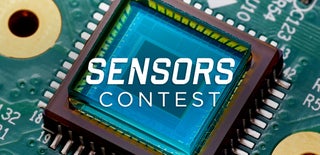Introduction: WIND - Project Accelerator for the Adafruit Feather
I have slowly been collecting the different Adafruit Feather microcontrollers and sensor boards that are available from Adafruit. They make prototyping and testing super easy, and I am a huge fan of the layout of the board. Since I found myself using them in more and more projects, I decided to make a "project accelerator" that would eliminate the need for a breadboard, and have easy access to a mount 18650 battery, and some buttons. Watch the video to see some uses and how to assemble it.
Step 1: Watch the Video!
Step 2: Gather the Parts and Tools!
Its best to check the PCB files for the BOM, as parts and part numbers may change or get updated!
Parts:
- 6 x 16 Pin Female Headers - Digikey
- 6 x 12 Pin Female Headers - Digikey
- 12 x 8 Pin Female Headers - Digikey
- 3 x Buttons - Digikey
- 100K 0805 Resistor
- 200K 0805 Resistor
- WIND PCB Files (GitHub)
- 18650 Battery Holder
- 18650 Battery
- Some adafruit feather series board!
- M3 Heat Set Threaded Inserts. - McMaster
- M3 Screws
Tools
- Soldering Iron
- 3D Printer (for housing)
- Screwdriver
Step 3: Start the 3D Print
Depending on what you're doing, you could modify the 3d prints to suit your needs. You could add antennas, buttons, anything. If you just want the basic housing, the files are available on thingiverse, or Github.
Start the prints now, then build the board while they're printing.
Step 4: Start Soldering!
Start with the smallest components first. Work your way up to the larger ones.
You can solder all of the headers at the same time if you work at it.
Step 5: Install Threaded Inserts
If you're using the version of mine that uses threaded inserts. You can install them now. These will hold the PCB inside of the housing and hold the lid on, should you choose to use one.
Step 6: Load Some Firmware on the Feather
Time to write some code and get your microcontroller doing the hard work for you!
Step 7: Screw in the Board.
Mount the board inside of the 3D printed housing.
Step 8: Deploy!
Now that you have an easy way to mount the feather and battery, you can basically put it where ever you want. Make some wireless sensors, a wifi hotspot, sensor node, weather station, whatever you want!
Step 9: Support These Projects!
These projects are free and open source. If you like what I do and want to support me consider becoming a patron on Patreon.
If you enjoy my videos, hit that SUBSCRIBE button!

Participated in the
Sensors Contest













